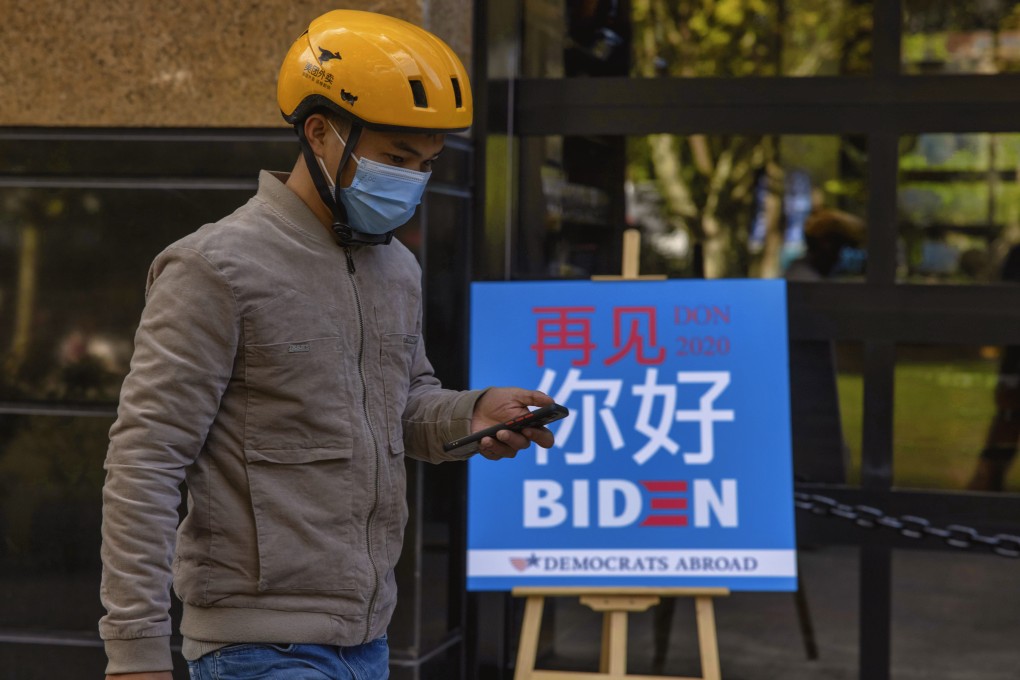Advertisement
China Briefing | US presidential election: China’s unspoken hope is it can work with Joe Biden
- Chinese media coverage of the US election has been muted in part out of concerns Trump administration hawks will sow chaos before leaving office
- While Biden is likely to get tough on issues like technology and human rights, cooperation beckons on climate change and future pandemics
Reading Time:4 minutes
Why you can trust SCMP

As the extraordinary drama of the American presidential election has played out over the past few days, highlighting how dangerously divided the world’s biggest power has become, the media and pundits in the rest of the world have gone into overdrive, trying to place the historical moment into context and dive into its global implications and what it means for their own countries.
China has proved the exception even though the outcome of the election carries great importance for US-China ties, arguably the most consequential bilateral relationship in the world.
The official traditional and online media has been eerily reticent, limiting coverage to straight news items like the voting turnout or speeches by the two presidential candidates, Donald Trump and Joe Biden, and refraining from offering meaningful lengthy analyses.
Advertisement
The state media and analysts may have been given a bit more leeway in reporting and commenting on the clashes between protesting Trump and Biden supporters and the boarding up of businesses as fears of unrest spread, with the aim of showing American democracy in decline. But they have apparently been given a gag order preventing them from discussing the election’s political context and its implications for US-China ties for two reasons.

06:04
US-China relations: Joe Biden would approach China with more ‘regularity and normality’
US-China relations: Joe Biden would approach China with more ‘regularity and normality’
Traditionally, as all the Chinese news outlets are under state control in one way or another, they generally refrain from commenting in detail on ongoing elections in foreign countries due to concerns their views may be construed as those of the government. This is particularly true for this election as Beijing does not want to create the impression it endorses or opposes either candidate amid rising concerns in the United States about possible election interference by foreign countries including China.
Advertisement
Advertisement
Select Voice
Choose your listening speed
Get through articles 2x faster
1.25x
250 WPM
Slow
Average
Fast
1.25x
